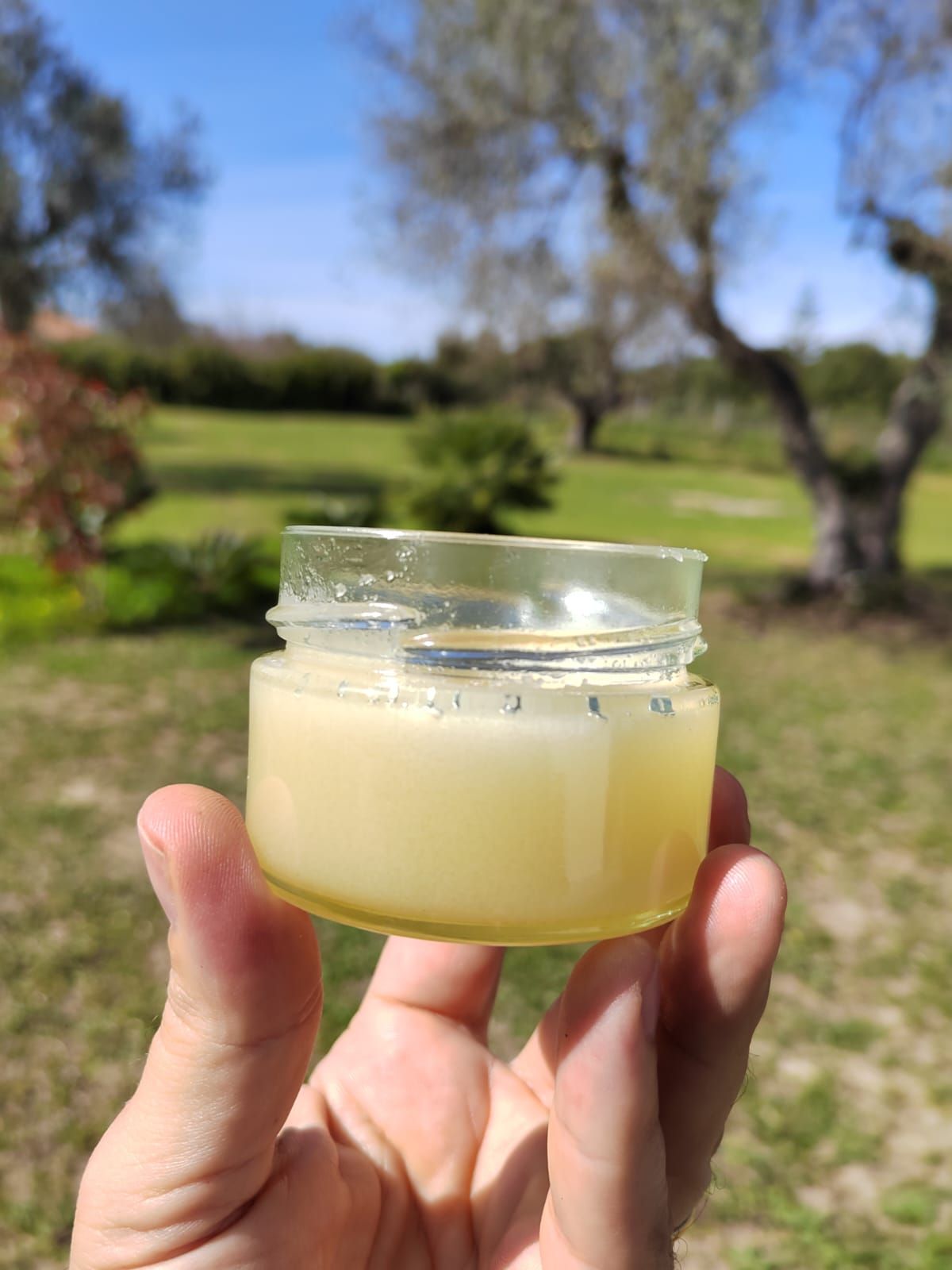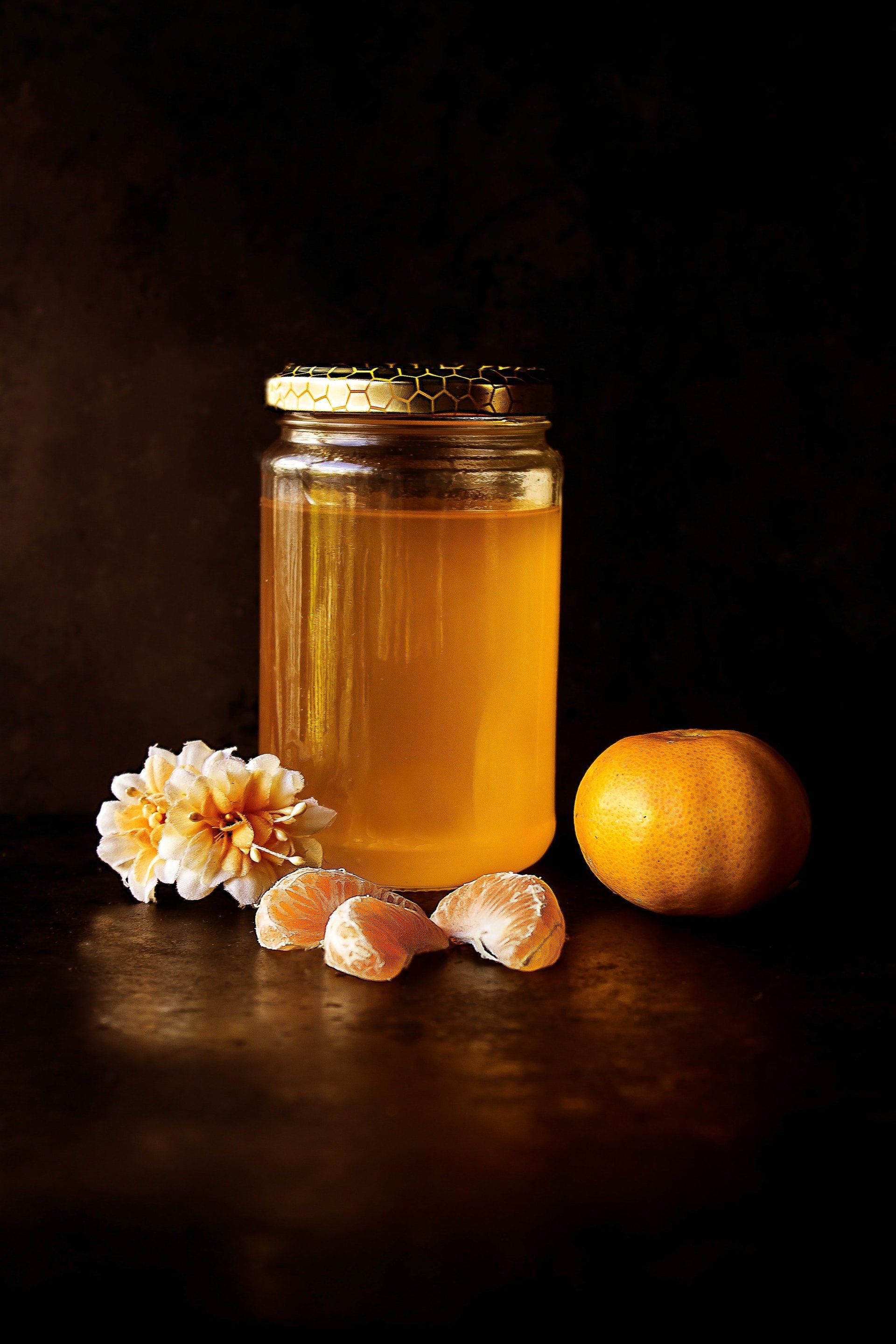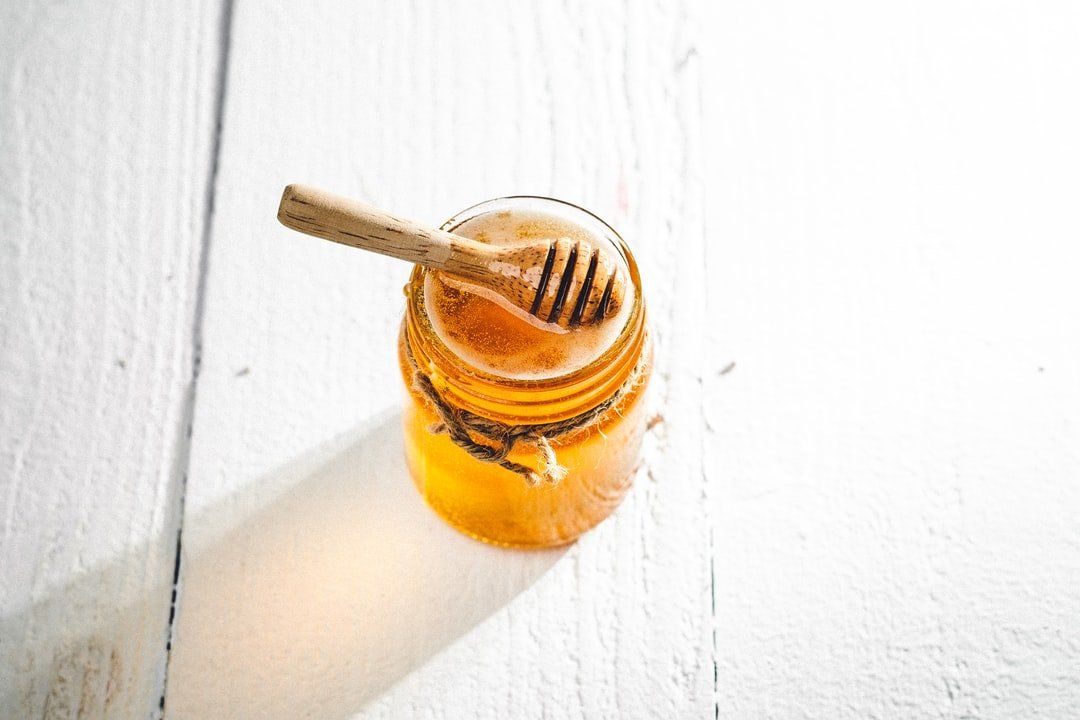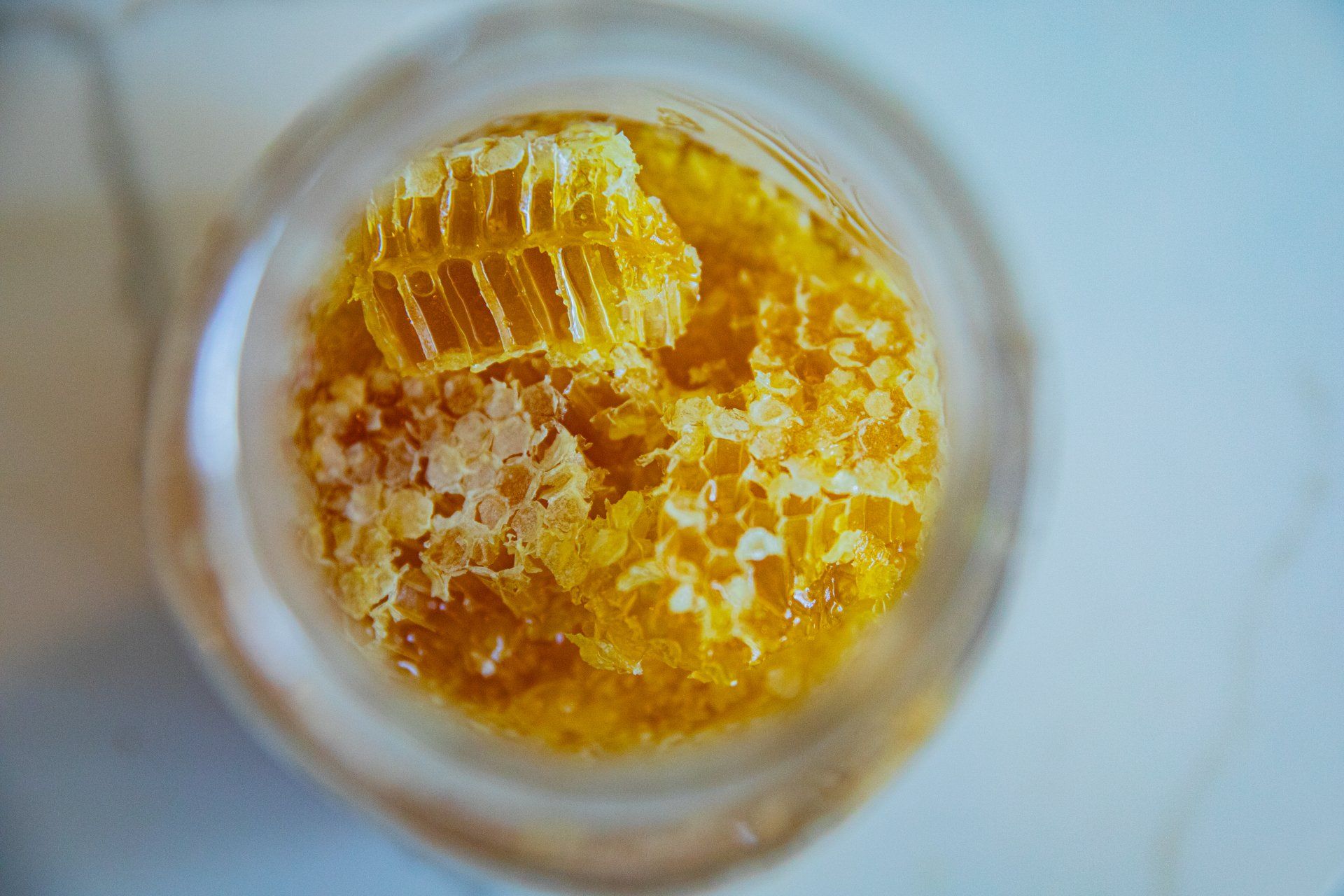Everything You Need To Know About Organic Honey
What do you know about organic honey? Read all about the health benefits, its uses in cooking, and more in this detailed guide.
Did you know that the oldest jar of honey is more than 5,500 years old? Humans have been going crazy over honey since the stone age, but only recently have we discovered all the amazing health benefits that organic honey has to offer. Many people think that honey isn't healthy because it tastes so sugary, but that isn't the case at all.
When you consume honey (in moderation, of course), you can actually supplement your body's health in several different ways. That's because raw honey has virtually everything your body needs from vitamins and minerals to antioxidants and more. The great thing about buying organic raw honey is that you also support bee farmers who harvest the honey in the first place.
Keep reading and learn much more about the benefits of raw honey below.
Organic Honey Is Full of Antioxidants
Perhaps one of the biggest raw honey benefits is that it is packed with antioxidants. If you don't know what antioxidants are, the first thing you need to know is that your body needs them to stay healthy and function normally. In particular, antioxidants have the ability to fight things known as free radicals.
Free radicals are unstable atoms that appear in the human body every so often, usually as a result of some kind of stress or contaminant. These atoms are unstable because they have lost an electron. As a result, the free radicals want to stabilize themselves however they can.
To do this, the free radicals will try to interact with cells in your body. However, this actually causes damage to your body through a process known as lipid peroxidation. Lipids are a big part of your cells and when free radicals try to steal electrons from your cellular lipids, your cells (and your health) can suffer in a variety of ways.
Free Radical Damage and Antioxidants in Honey
Scientific studies have shown that lipid peroxidation resulting from free radical damage can accelerate the aging process, cause certain cancers, and cause inflammation throughout the body. Of course, none of these things are good but fortunately, antioxidants can fight against this damage.
This is possible because antioxidants are able to minimize the damage that free radicals cause and they are also able to limit the number of free radicals themselves. As mentioned before, honey is full of antioxidants. When you eat honey on a regular basis, you can protect your body from free radical damage.
The antioxidants in raw organic honey may also soothe inflammation that your body is already suffering from. For example, some people find that honey can soothe certain gastrointestinal problems. However, more scientific evidence is needed to see how true this benefit is.
Honey Is Antibacterial and Antifungal
Humans have been using honey as an antibacterial treatment for all sorts of things since the time of the ancient Egyptians. Back then, the Egyptians would often use honey to heal wounds. Today, honey is not used to heal wounds, but it can still soothe a variety of other ills.
Scientific studies have found that honey may be able to treat certain bacterial or fungal problems both inside and outside of the body. For example, topical fungal infections caused by the Candida fungal strain seem to be weak to the healing effects of honey. However, the healing effects vary depending on the honey.
Some types of honey are more effective than others. This may have to do with what pollen is used to create honey. Whatever the case, many people find that honey is very useful for healing all sorts of ills.
Honey and Acne
In particular, many people find that honey is very good at treating and preventing acne. Most acne is caused by bacteria. Specifically, Propionibacterium acnes (P. acnes) is the main bacteria that causes acne.
Once the bacteria penetrates a person's pores, the bacteria will start to fester within the pores.
As a result, an inflamed pimple will form on the skin. Since honey is naturally antibacterial, it makes sense that it could help with this problem.
Many people like to dab honey on their pimples or do honey masks. Leaving honey on the skin can kill any harmful bacteria that might be on the skin's surface. As you can imagine, honey's antibacterial properties may be helpful to treat certain conditions inside the body as well.
Honey for Treating Digestive Issues
Using honey to treat digestive issues is not anything new. People have been eating honey to soothe upset stomachs and other digestive problems for thousands of years. However, there are not yet many scientific studies to show how well honey really works for treating digestive issues.
Even so, many people find that honey still works to soothe certain stomach ailments. For example, honey may be a very good treatment for stomach ulcers. This is because most stomach ulcers are caused by the bacteria H. pylori.
When these bacteria latch onto the stomach, they start to eat away at the stomach's internal lining. As a result, the stomach becomes inflamed and irritated. Common symptoms of a stomach ulcer include stomach pain, lack of appetite, and discomfort when eating or drinking.
Since honey has antibacterial properties, it makes sense that it would work to kill off the H. pylori bacteria. However, if the stomach ulcer is not caused by this bacteria, honey may not work. Besides treating stomach ulcers, honey is full of prebiotics.
Prebiotics and Honey
Prebiotics are different from probiotics, but even so, they are both helpful when it comes to improving your digestive health. Prebiotics in particular are perfect for supplying nutrients to the good bacteria that live in your gut. Many people have the impression that all bacteria are bad, but this is not the case at all.
There are certain strains of good bacteria in your intestines that you can't live without. Without them, you would not be able to digest and process your food in the right fashion. As a result, your body would not be able to absorb enough nutrients to function.
By supplementing the good bacteria with honey, you may find that you can digest food more efficiently than ever before.
Raw Honey Can Help Soothe Sore Throats and Respiratory Infections
You have likely heard that honey can help soothe a sore throat. As it turns out, this isn't just an old wives' tale. Honey can actually be a very good treatment for a sore throat.
Sore throats happen for a variety of reasons. Most commonly, they occur as the result of a cold or flu. Colds are caused by viruses and while honey is not an antiviral, it can still help the problem.
How can this be, you might ask? Much of honey's power comes from the fact that it has very powerful anti-inflammatory powers. These powers come from the fact that honey is full of antioxidants. Because a sore throat is an inflammatory problem, it makes sense that honey would be able to help.
Honey is also very smooth and viscous. For that reason, it won't serve to further irritate your esophagus as it goes down your throat. Because it is sticky, the honey will also stick to your esophagus for a short time and be able to enact its health benefits.
But the benefits of honey don't stop there. Some studies have found that honey is particularly useful for soothing certain upper respiratory infections. Honey might even be more useful than other, more traditional treatments when it comes to this problem.
Of course, honey can not completely cure certain respiratory infections. However, when it comes to improving the symptoms that upper respiratory infections create, honey seems to be especially effective.
Are There Downsides to Honey?
At this point, you might wonder if the benefits of honey are too good to be true. Are there any downsides to honey?
There are not many downsides to honey, but you will want to avoid it if you are allergic to bees or bee pollen. You should also be sure that your honey isn't contaminated with harmful bacteria, otherwise, you could end up with botulism poisoning. Fortunately, contaminated honey is a rare problem.
Everything You Need to Know About Organic Honey
As you have seen, organic honey is full of health benefits. Many of honey's benefits come from the fact that it is full of antioxidants. Antioxidants can help fight inflammation throughout the body and can even soothe certain health conditions.
From helping stomach ulcers and sore throats to improving your digestion and fighting acne, honey can do all sorts of things. If you're interested in buying honey, check out our products here.














